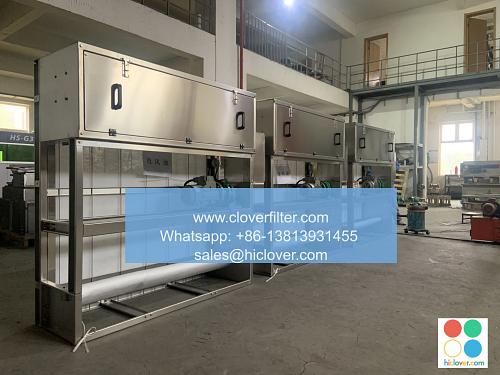The Benefits of Choosing an Air Filter with an Energy-Efficient Design

Choosing the right air filter for your home or business can have a significant impact on the air quality and energy efficiency of your space. With the increasing focus on energy conservation and sustainable living, it’s essential to select an air filter that not only provides excellent filtration but also has an energy-efficient design. In this article, we’ll explore the benefits of choosing an air filter with an energy-efficient design and highlight various application areas where these filters can be particularly useful.
What is an Energy-Efficient Air Filter?
An energy-efficient air filter is designed to minimize energy consumption while maintaining optimal filtration performance. These filters typically use advanced technologies such as nanofiber filtration, electrostatic charges, or pleated designs to capture airborne pollutants and particles. By reducing the amount of energy required to operate, energy-efficient air filters can help lower your energy bills and reduce your carbon footprint.
Benefits of Energy-Efficient Air Filters
The benefits of choosing an air filter with an energy-efficient design are numerous. Some of the most significant advantages include:
– Reduced Energy Consumption: Energy-efficient air filters use less energy to operate, which can lead to significant cost savings over time.
– Improved Indoor Air Quality: These filters can capture a wide range of airborne pollutants, including particulate matter, volatile organic compounds, and allergens, to improve the overall indoor air quality.
– Extended Filter Life: Energy-efficient air filters often have longer lifespans than traditional filters, reducing the need for frequent replacements and waste.
– Increased System Performance: By reducing the energy required to operate, energy-efficient air filters can help increase the overall performance and efficiency of your heating, ventilation, and air conditioning (HVAC) system.
Application Areas for Energy-Efficient Air Filters
Energy-efficient air filters can be applied in various settings, including:
– Residential Homes: Improving indoor air quality and reducing energy consumption in homes.
– Commercial Buildings: Enhancing the air quality and energy efficiency of offices, schools, and other commercial spaces.
– Industrial Facilities: Providing clean air and reducing energy costs in manufacturing plants, warehouses, and other industrial settings.
– Healthcare Facilities: Maintaining high levels of air quality and reducing the risk of hospital-acquired infections in hospitals, clinics, and other healthcare settings.
– Transportation Systems: Improving the air quality in vehicles, airplanes, and public transportation systems.
Conclusion
In conclusion, choosing an air filter with an energy-efficient design can have a significant impact on the air quality and energy efficiency of your space. With the numerous benefits and various application areas, it’s essential to consider energy-efficient air filters for your home or business. By selecting a filter that combines excellent filtration with energy efficiency, you can enjoy cleaner air, lower energy bills, and a reduced carbon footprint. Make the switch to an energy-efficient air filter today and start experiencing the benefits of sustainable indoor air quality. You haven’t provided a prompt or question for me to respond to. Please go ahead and ask your question, and I’ll do my best to provide a helpful and informative answer.

